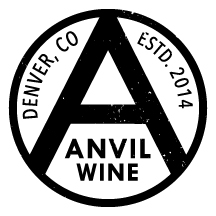Enderle & Moll
Baden
In Germany many insiders consider Enderle & Moll the country’s single greatest producer of Pinot Noir. That’s a wild claim to be sure, but then you taste the wines and you think to yourself, “…yeah, alright, well maybe…”
The wines are that compelling.
What you can say with certainty is Sven Enderle and Florian Moll fly in the face of just about every conventional estate in Baden. It’s hard to emphasize how contrarian (and even confrontational) their vineyard and cellar work appears to the powerful coops of the region, to say nothing of the “famous” estates who still seem to pursue efficiency, ripeness, size, alcohol and, yes, new oak, with abandon.
Sven and Florian work with very old vines. In fact their vines are among the oldest Pinot Noir vines in Baden. They farm all the vineyards organically and biodynamically. Absolutely everything is done by hand in the vineyards (which are quite steep) and in the cellar. They have a direct line on barrels from Domaine Dujac – the barrels range from one to over five years of age. The wines are bottled unfined and unfiltered.
The Pinot Noirs are masculine, broad-shouldered, powerful in a sneaky sort of way. Yet they are also wildly detailed, bright, energetic, ethereal, satiny. Thus the mystery, the beauty and yes, all the damn fuss. At this point it’s said so often it’s beyond trite, but here we go: If you appreciate Burgundy these wines are worth checking out. Not because they taste like Burgundy, they don’t, but because they share a similar aesthetic of lightness matched to intensity, filtered through soil.
Two “Grand Crus” are bottled: a wine from limestone called “Muschelkalk” and a bottling from colored sandstone called “Buntsandstein.” The “Liaison,” a sort of middle-wine-premier-cru-style, is a blend from younger vines in the Grand Cru sites. “Young,” it should be said, at around 45 years of age, which the French will often call “vieilles vignes.” The “Basis” is from the youngest vines, around 30 years old.
While the red wines have established the reputation of the estate, the white wines are getting better and better every year. The white wines are textural and complicated, yet also elegant… balanced, in perfect harmony and arising from such unexpected grapes as Müller-Thurgau, Auxerrois, Weissburgunder and Grauburgunder. The rosé is a tour-de-force wine in the wild manner of the wines of, say, Clos Cibonne or even a Valentini.

